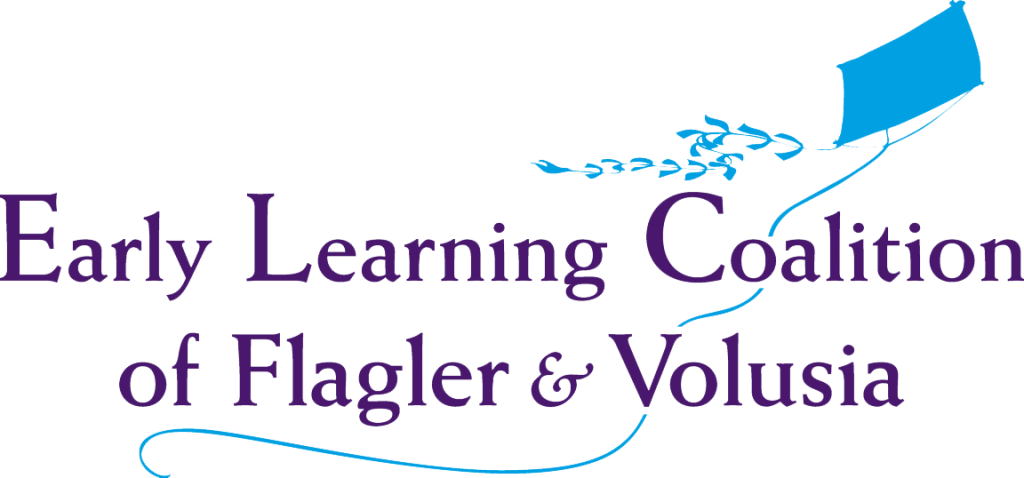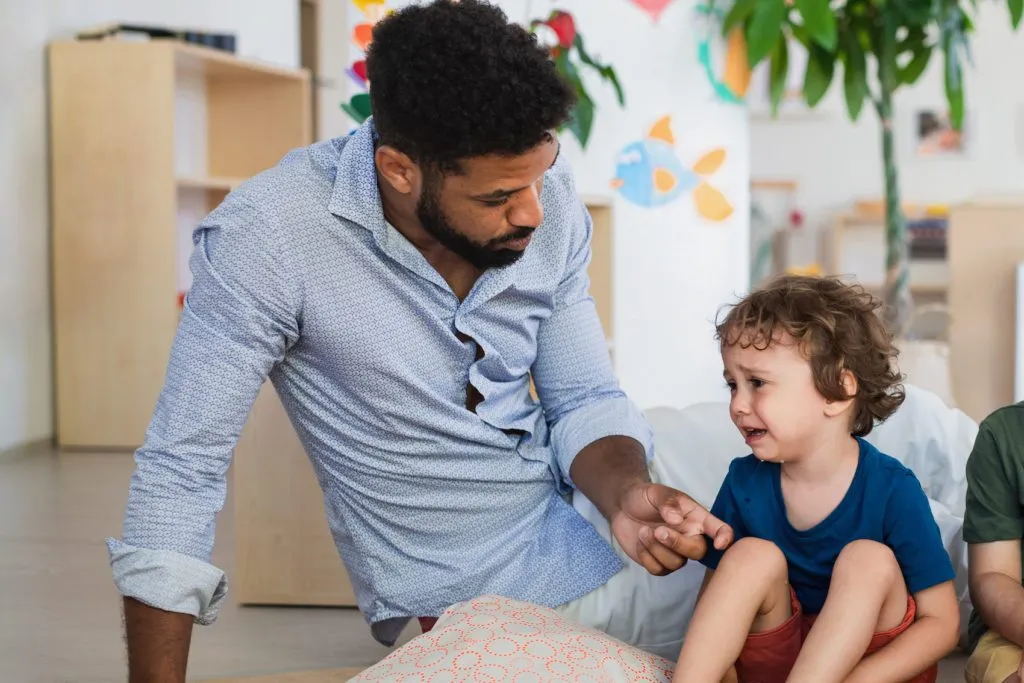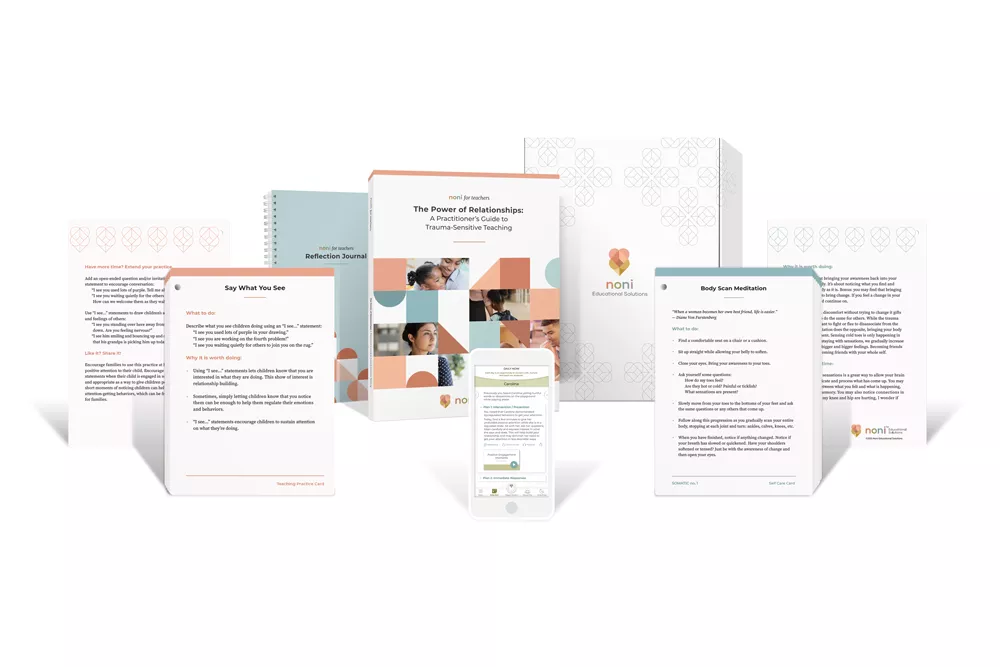Reduce Challenging Child Behaviors and Increase Teacher Wellness With Noni

CHALLENGE: Teacher burnout, turnover, and a steep increase in challenging child behaviors led an early learning coalition to seek a new kind of support.
 Like so many other schools and programs, the Early Learning Coalition (ELC) of Flagler & Volusia Counties in Florida saw the pandemic significantly exacerbate already-challenging circumstances for so many of their children and families. Particularly in Volusia County, the majority of programs serving young children grappled with meeting the needs of high numbers of children placed in foster homes and/or experiencing homelessness.
Like so many other schools and programs, the Early Learning Coalition (ELC) of Flagler & Volusia Counties in Florida saw the pandemic significantly exacerbate already-challenging circumstances for so many of their children and families. Particularly in Volusia County, the majority of programs serving young children grappled with meeting the needs of high numbers of children placed in foster homes and/or experiencing homelessness.
After decades as a classroom teacher and now serving as the ELC’s Early Childhood Behavior Specialist, Ellyn Minnich lay awake at night worrying about their level of teacher turnover and the child behavior challenges resulting from this lack of stability for already-struggling children. So many of their programs were locked in a vicious cycle: high teacher stress levels led to burnout and turnover, children forced to restart their classroom communities with a new teacher struggled with their behavior, and challenging behaviors produced more teacher stress. The cycle would repeat over and over. Ellyn knew that without some type of intervention to address the root causes of the cycle, they’d never be able to break it.
SOLUTION: They discovered a new resource that checked all the boxes: support for teacher mental health and wellness, insights into the impact of trauma, and guidance to manage child behavior challenges.
“Lots of initiatives come across my desk, but when I saw the information about Noni, it really just stuck with me. We were at a point where we had a lack of educated teachers who really understand social-emotional development, a loss of social skills for children as a result of the pandemic, and constant teacher turnover in our programs, all leading to a volume of behavioral issues that we’d never seen before on our school readiness assessments. The fact that Noni offered support to address each one of those things really caught my eye,” said Ellyn.
Ellyn knew that their already overburdened teacher workforce was likely to resist taking on “one more thing.” But as she did more research on Noni and began to see how easy and responsive the technology was, she went straight to her supervisors.
“I said, ‘This resource is not a burden. This is something that actually addresses the existing burden of the circumstances we’re currently in. It isn’t something else for teachers to do, it’s the only thing that will really help with where they are. This is something we have to do.”
What Ellyn found in Noni was a resource that finally addressed all sides of their current circumstances—providing not just support for the child, like most curricula do, but support for the teacher and families as well. Noni’s technology was built to ease the burden of teacher stress: it offers in-the-moment guidance for managing challenging classroom behaviors while gently encouraging teachers to understand what’s behind the behaviors and offering tools to help them care for themselves when their work is especially stressful.
“This is technology that teachers can use just to target the few children they’re having challenges with—it doesn’t even have to be used with every child. The initial setup is quick, it takes minimal time, and it provides daily information that will directly help address the exact challenges a teacher reports having with a child.”
Additionally, said Ellyn, there were so many other little things that Noni does, “like checking in on the teacher in the mornings, reminding them throughout the day that they’re doing a great job, checking in at the end of the day and encouraging them to take two minutes to use one of the quick self-care strategies built into the app. Center directors are so busy, they can’t always check in like that, and Noni does it for them. Teachers may say they can’t take on one more thing, but this isn’t a solution that’s all-consuming. It’s just there to help when you most need it.”
IMPLEMENTATION: The ELC began targeting programs where teacher turnover and challenging behaviors were the biggest hurdles.
The ELC of Flagler & Volusia began with an initial cohort of 30 teachers, who, after attending several hours of virtual training, began to use Noni in their classrooms. The feedback was so incredibly positive (with some teachers going so far as to say the information from the training had changed their lives by helping them recognize and understand their own adverse childhood experiences) that they rolled the initiative out to two additional cohorts, approximately 40 more teachers. Several of these second-phase teachers have already reached out to Ellyn to say that Noni has had a positive impact on their classrooms.
“A big part of Noni is about educating the teacher on the impact of trauma and adverse childhood experiences (ACEs) on young children and how and why that leads children to demonstrate challenging behaviors. It really meets the teachers on a human level, showing them that a child’s behavior isn’t a reaction to the teacher, it’s a reaction to what the child is going through or has been through in their lives.
“I had so many teachers reach out to me who had these ‘a-ha’ moments of understanding their own ACEs, of being able to see the child’s behavior with empathy, of being able to make these connections with the children who were having challenges in a way they couldn’t before Noni.”
RESULTS: School readiness assessment data shows an ongoing reduction of challenging behaviors in the classroom.
The ELC of Flagler & Volusia has been implementing Noni in their classrooms since December of 2021, and early data they’re collecting from teachers who have been using it is promising.
“We’re getting information on an ongoing basis, and we can see from our school readiness assessment data over time that behaviors have reduced—we can see it from the numbers. Noni is helping teachers to form these positive connections with the children, so we see those negative behaviors starting to stop.”
Feedback from each cohort of teachers who’ve taken the training confirms that implementing Noni was the right decision.
“Our teachers have been 99% positive about the training and the information they have received. Usually, teachers don’t fill out the comments sections of the surveys we send out to gather their feedback. But I have had so many personal comments from so many teachers that they appreciated us giving them resources to help themselves, in addition to helping the children. The feedback was honestly overwhelming, because you just don’t see teachers doing it that often.”
The ELC of Flagler & Volusia plans to continue to add cohorts of teachers implementing Noni as the new school year begins this fall. Participants are thrilled with the results to date. As one teacher who reached out to Ellyn put it, “I didn’t even know we could feel this good about what we’re doing.”

Predict and plan for challenging and disruptive behaviors
Easily track children’s responses to triggers, identify patterns, understand children better, and plan ahead to mitigate challenging or disruptive behaviors before they occur with Noni.



